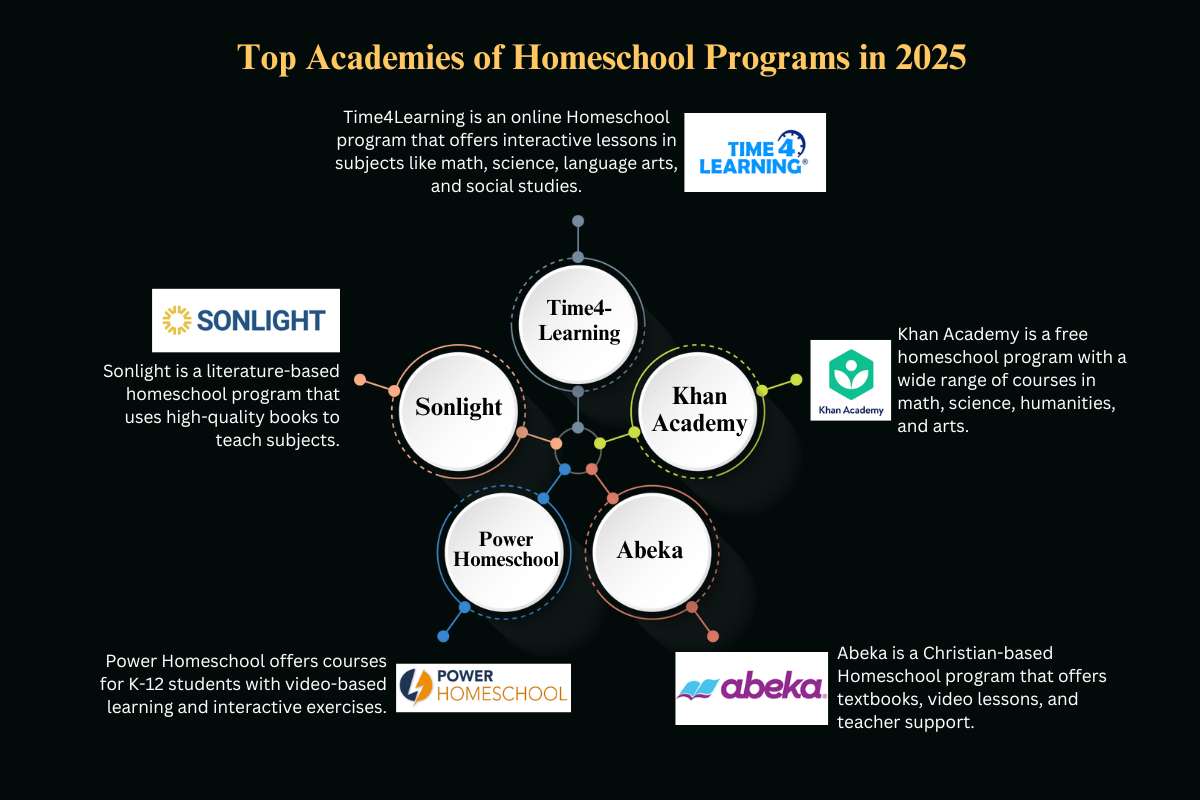During the coronavirus pandemic, everything changed, including education. When schools shut down, my little brother had to switch to homeschool programs. He found this program difficult in the early days because he missed his friends and teachers. But over time, he got used to learning at home. He could study at his own pace and focus better without distractions. Our parents helped him with lessons, making learning easier and more fun. Even though it was challenging, home-school programs kept his education on track safely and flexibly.
Within months, he showed remarkable progress. He became more confident, creative, and even started learning new skills. This made me realize how effective Home School Programs can be in providing personalized education and boosting a child’s overall growth. In this blog, we will discuss the importance of Homeschool Programs, explore their types, and highlight the benefits of some popular programs.
Homeschool programs offer flexible and personalized learning, allowing children to study independently. They provide a safe environment, strengthen family bonds, and promote creativity. With various types like online, classical, and unschooling, parents can choose what suits their child best. These programs help children develop strong skills and values while receiving quality education at home.
What Are Homeschool Programs?
Homeschool programs are alternative learning systems where children are educated at home instead of attending school. Parents or private tutors usually manage the curriculum and teaching. These programs allow parents to choose what, how, and when their children learn, according to their flexibility and customization. In recent years, Home School Programs have gained popularity due to their personalized learning approach. With growing concerns about safety, bullying, and the limitations of standard curricula, more families are switching to homeschooling.
Why Are Homeschool Programs Important?

Choosing Homeschool Programs over regular schooling has become a practical option for many families. Here is why they are important,
1. Personalized Learning
In schools, students are using a standard curriculum, which may not suit everyone’s learning style. Homeschool programs allow parents to customize lessons according to their child’s strengths, weaknesses, and interests. This personalized approach improves understanding and makes learning more enjoyable.
2. Flexible Schedule
Traditional schools with fixed timings, Home School Programs offer flexibility. Children can study at their own pace and take breaks when needed. This is particularly helpful for children with special needs or those involved in sports, arts, or other activities.
3. Stronger Family Bonding
Since parents are actively involved in teaching, Home School Programs strengthen family relationships. Children spend more quality time with their parents, which supports emotional connections and trust.
4. Safer Learning Environment
In schools, bullying, peer pressure, and school violence have become major concerns. Home School Programs provide a safe and comfortable environment, free from these external stressors.
5. Focus on Values and Ethics
Parents who choose Home School Programs have the freedom to include moral, cultural, and religious values in their child’s education. This helps instill discipline, empathy, and strong character from an early age.
Types of Homeschool Programs

Different types of Homeschool Programs cater to diverse learning styles and preferences. Here are some of the most common types,
1. Traditional or Classical Homeschooling
This method follows a structured curriculum similar to regular schools. It includes subjects like math, science, language, and social studies, with a focus on memorization, grammar, and logical thinking.
Best for: Families who prefer a formal education style at home.
2. Unschooling
In Unschooling, children explore subjects they are genuinely interested in, without a fixed curriculum or schedule. It promotes creativity, curiosity, and independent learning.
Best for: Creative and self-motivated learners.
3. Unit Study Homeschooling
This method combines multiple subjects under a single theme or topic. For example, a lesson on ancient history, art, math, and science activities makes learning more interconnected and engaging.
Best for: Children who enjoy hands-on, project-based learning.
4. Online Home School Programs
These programs use digital platforms to deliver lessons, quizzes, and assessments. Online Homeschool Programs offer interactive content, recorded lectures, and live classes.
Best for: Digitally skilled learners and parents who prefer pre-designed curricula.
5. Charlotte Mason Method
Based on the philosophy of Charlotte Mason, this approach emphasizes reading quality literature, spending time in nature, and practicing good habits. It encourages gentle, nature-based learning.
Best for: Parents seeking a relaxed, literature-focused approach.
6. Eclectic Homeschooling
Eclectic homeschooling combines different teaching styles and resources. Parents pick elements from various School Programs to create a customized learning plan that fits their child’s needs.
Best for: Parents seeking flexibility and variety in teaching methods.
Top Academies for Homeschool Programs in 2025

Many families prefer homeschool Programs because of their proven benefits. Here are some benefits of homeschool programs,
1. Time4Learning
Time4Learning is an online Homeschool program that offers interactive lessons in subjects like math, science, language arts, and social studies.
Benefits:
- Self-paced learning with flexible schedules.
- Automated grading and record-keeping.
- Access to printable worksheets and quizzes.
2. Khan Academy
Khan Academy is a free homeschool program with a wide range of courses in math, science, humanities, and arts.
Benefits:
- High-quality video lessons.
- Interactive exercises and progress tracking.
- Free access for students worldwide.
3. Abeka
Abeka is a Christian-based Homeschool program that offers textbooks, video lessons, and teacher support.
Benefits:
- Structured curriculum with a Christian perspective.
- Accredited program with report cards and diplomas.
- Provides lesson plans and assessments.
4. Power Homeschool
Power Homeschool offers courses for K-12 students with video-based learning and interactive exercises.
Benefits:
- Self-paced lessons.
- Progress tracking and grade reports.
- Flexible, user-friendly platform.
5. Sonlight
Sonlight is a literature-based homeschool program that uses high-quality books to teach subjects.
Benefits:
- Focus on reading and storytelling.
- Pre-planned lesson guides.
- Focus on critical thinking and comprehension skills.
Conclusion
Homeschool programs are changing how children learn by offering flexibility, personalized lessons, and a relaxed environment. If you follow a set curriculum or a more flexible approach, homeschooling lets you focus on your child’s strengths and interests. With many programs available, you can choose one that suits your family’s needs. By understanding the importance, types, and benefits of homeschool programs, you can make a smart choice and give your child a learning experience that helps them grow and reach their full potential.

